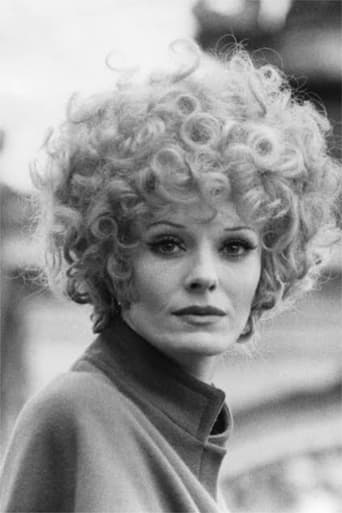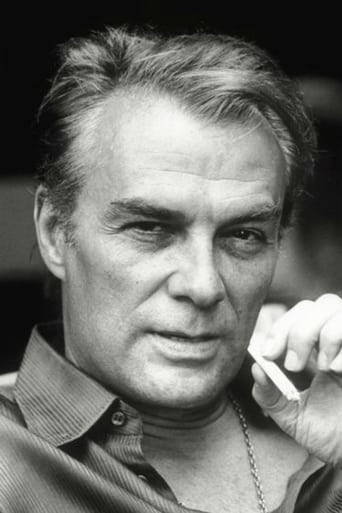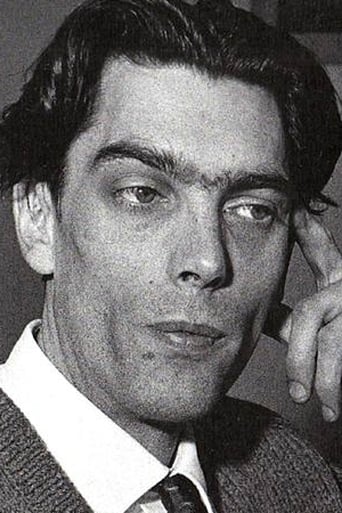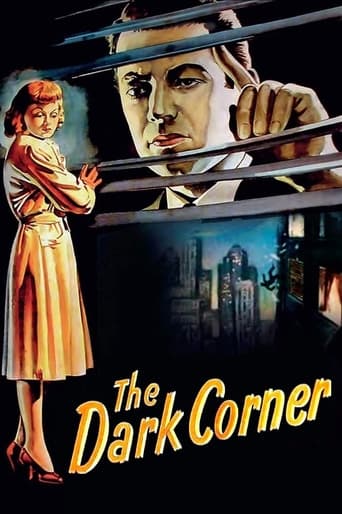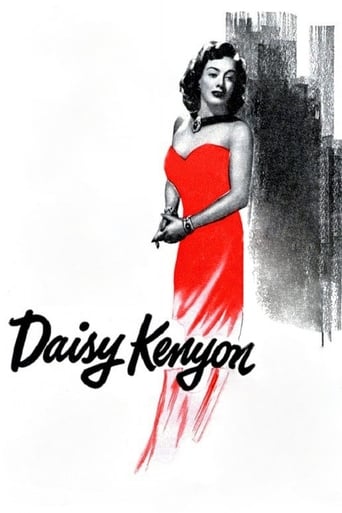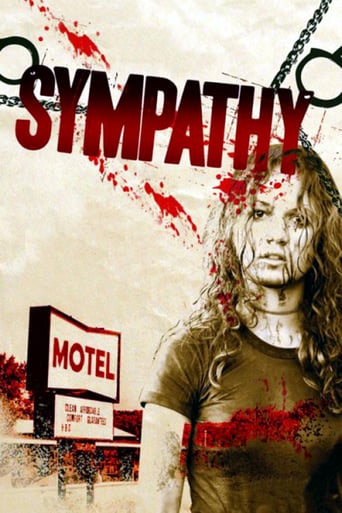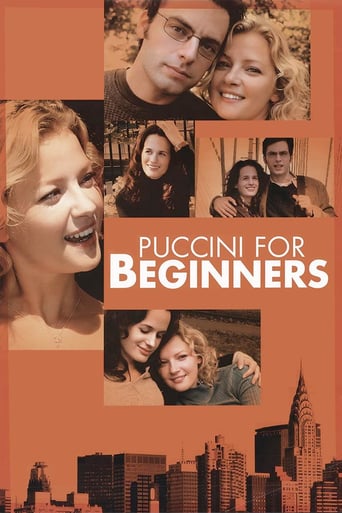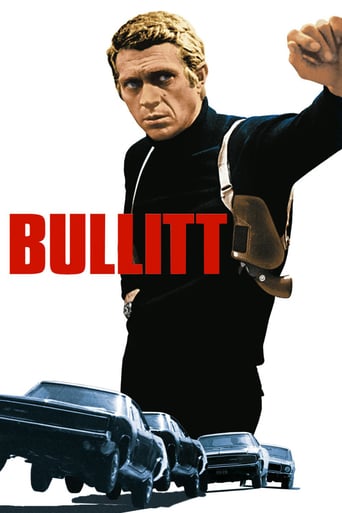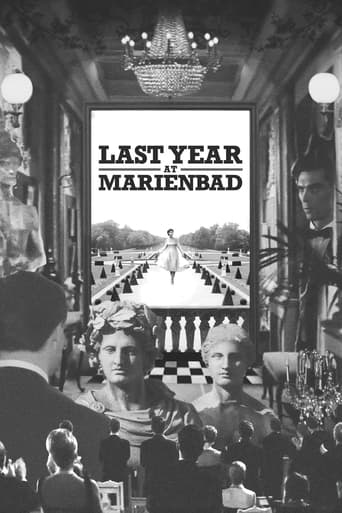
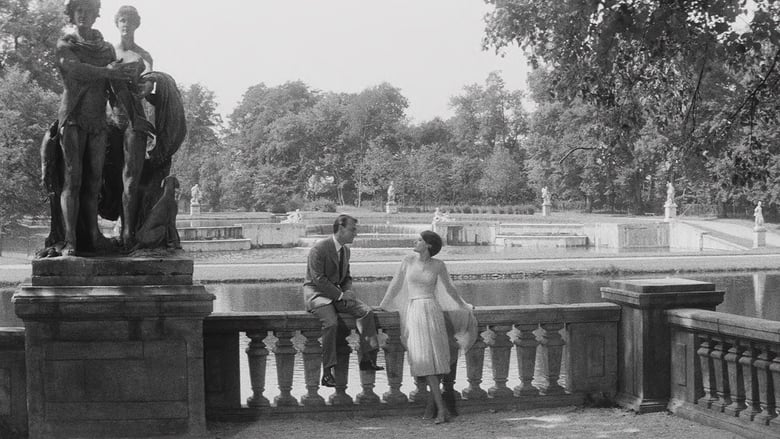
Last Year at Marienbad (1961)
In a strange and isolated chateau, a man becomes acquainted with a woman and insists that they have met before.
Watch Trailer
Cast
Similar titles
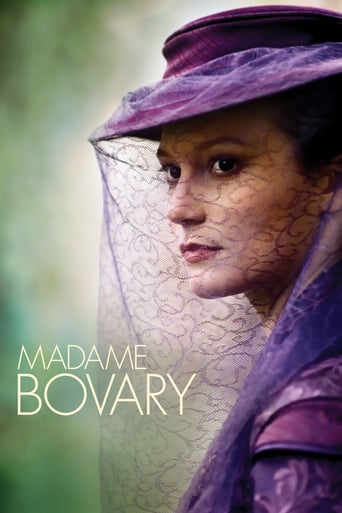
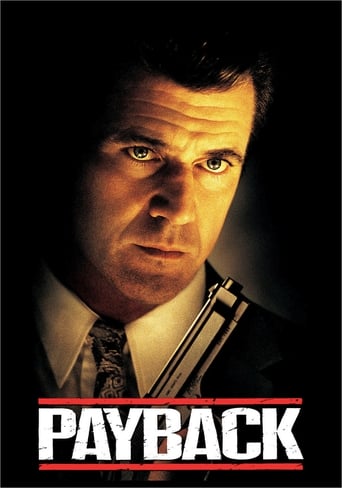
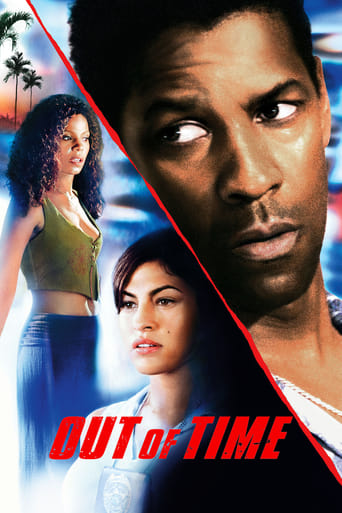
Reviews
Let's be realistic.
A brilliant film that helped define a genre
If you like to be scared, if you like to laugh, and if you like to learn a thing or two at the movies, this absolutely cannot be missed.
Excellent and certainly provocative... If nothing else, the film is a real conversation starter.
"Last Year at Marienbad" is the most enigmatic film that I have ever seen. I don't know if there is a "correct" interpretation of this film. The editing of the film make any sense of time irrelevant. Some scenes repeat, cut in without context, others replay with entirely different scenarios. The long, slow tracking shots, the muted dialogue with other people besides the main three, the way the people around them will suddenly stop moving to show the importance of the situation to the characters, and the soundtrack done mostly with organ and piano, truly create a unique and gloomy atmosphere.I am convinced the whole film takes place entirely in the characters' memories, but I can't really figure out which one, or if it's just all of them. It is unclear whether the lady, who is unnamed along with the rest of the characters, is alive or dead. The set design seems to loop in a never ending labyrinth, like the memories of the characters. I'm pretty sure that the story is told from the main three characters' perspectives, and they are each remembering what they've lost with each other, while the woman still can't decide if she made the right decision regarding whether to leave the man she is with for another, no matter what decision she did end up making (which I still can't quite decipher). This is simply my interpretation, but this interpretation (and all others) are truly irrelevant. I feel the main purpose of this film is not to simply tell a story, but evoke the emotions that these characters feel. It's a tough film to get into, but once you're into it it proves to be incredibly immersive. Eventually, we begin to feel what these characters do. We feel the loss, regret, and how close they were to love. But now this fading memory just feels like a dream, or a nightmare.
I was first introduced to this film in college.The first viewing stunned me. I was literally hypnotized by the imagery and the aura.Years passed, and I saw it again on DVD. It was as if I was inside the film again, repeating my life at Marienbad. A couple of weeks ago, I was deeply saddened to hear the news of the passing of the great French director Alain Resnais. Among the numerous pieces I have of his, I picked this out and saw it again. It was magical, as it always was. Too bad they don't make movies like this anymore. But still Long live cinema!
This is actually a very simple film to understand. The key to understanding the film actually lies in the title itself and the color scheme of the opening credits. Because it is the type of film that invites the viewer to attach his or her own associations to the flow of the narrative it naturally accrues endless complexity to it, but the concept is simple to understand. Oddly enough, this is a film about Spatial and Temporal Discontinuity, or put more prosaically, being in the wrong place at the wrong time. It is indeed an example of Stephen Hawking's 'psychological time', and also about the act of attempting to recall or remember when trauma precludes your access to all the available data. This film presents the apparency of an unsolvable puzzle because writer Alain Robbe-Grillet and Director Alain Resnais have deliberately withheld some of the pieces from view in order to invite the viewer to fill in the holes with their own ideas and conclusions as to what might have plausibly happened.I actually fell asleep on this piece twice, but after repeated viewings I finally was forced to confront the elephant in the room. This is a film about unconsciousness and what produces it. That was when I woke up and all the pieces fell into place. This is a film about the aftermath and consequences of adultery. My gut and intuition tells me actually what must have happened, but between 'X', 'A', and 'M', you can be certain not all parties are happy campers.That's the interesting thing about this experiment in subjective temporality and what makes this an important film. You get so caught up in wanting to piece this thing together intellectually as you wander and meander through the labyrinthian thought processes of one or more of the characters, that it somehow slips your mind that you are not involved in an intellectual process so much as you are experiencing the phenomena of a moral process; and how it affects memory, reasoning, reality and even the state of consciousness itself. It's not 'fashionable' to look at Art from a moral perspective, but if you chose not to do so with LAST YEAR IN MARIENBAD, you will be sentencing yourself to an eternal tour through the catacombs of your own diminishing understanding and consciousness.That sounds preachy, I know. The beauty of this film is how it communicates the loss of those things that make us most comfortable; reason, logic, the fidelity of memory and certainty about our position in Time and Space. How it sweeps us up in all the interesting externals of High Society and its masquerade of proprieties and leaves us standing at the back entrance watching two lovers depart hand in hand into the enfolding darkness wondering what just happened and what is this really all about. But it is the penalty of living in a culture where the simple and the obvious is swept under the rug in preference for the fun of the complex and the subtle and the abstruse.Here's another clue. There is a short story by Ambrose Pierce entitled 'AN OCCURRENCE AT OWL CREEK BRIDGE'. Read that and then conceptualize it as a three dimensional puzzle smashed to smithereens with some of the pieces falling into the air grate in the floor. Now good luck gathering all the pieces back together again into something like a satisfying recognizable whole.This is a film more about thoughts and ideas than emotions. But, oh the journey!
I have been awaiting to see this for so long and now finally did, it wasn't anything like I expected. So abstract, so unique, so layered and so experimental in many ways. It's just so over-whelming really. There are so many aspects of this movie that just baffle me in a away that won't leave me confused, but over-whelms me with different perspectives. Like how the people freeze all of the sudden, the dialog is cut off but we can see their mouths still moving and a lot more. There are many, many different analysis of the movie, and I don't agree or disagree with any of them. Only one I do agree (in some way), that they are all dead, in a limbo. That makes, at least IMO, kinda sense. But I don't agree with the people who say that there's nothing to get (I sort of agree who say the film is satirizing itself though), that it's confusing to the point, you shouldn't know what it's about. I think that's just a cheap excuse to not understanding the movie or not wanting to analyze this. Saying this film doesn't have a meaning is simply dumbing the movie down a lot. Then, what is this movie in my opinion about? Well, I think this movie is about sub-consciousness story-telling. What does that mean? It's a term I have some up with, it's a kind of story- telling that makes the audience make up the story them self, in their sub-conscious. We are given so little about the story, that we make our own mind what is the story about. We decide did they meet, we decide what did the people say (when the dialog was cut off) and we decide how it ended. Alain Resnais himself said that everybody has to make their own mind about the story. This could be so abstract it's satirical in a way. And maybe Resnais wanted it to be almost a parody of itself, by being so surreal and impossibly to understand fully, maybe. I don't want to think like that, to me that would take way a lot of this movies appeal. It's meant to be understood, but it's meant to be understood for many angles. So, I guess it could be a parody. But it also kinda makes fun of the creativity that wasn't in main-stream Hollywood at that time. How creativity is dead in films now. One guy here in IMDb said it the best about this movie, something about how the woman represents current film-making and how "she" can't remember her golden days. That was pretty spot on. A lot of people hate this film. I can understand it, it's not for everybody, because there is no clear answer anything nor a clear story. If you don't like experimental film, this isn't for you. If your looking for something new, something that's trying to invent how you see movies in a different way, this is for you. To some people it's a mystery (actually to everybody pretty much) and a lot of people don't like the ambiguity of the story. It's a kind of movie that respects it's audience, nothing telling them everything, but respecting the audience to make up their own mind. And I understand that some of you don't like that at all. To some it's simply not "fun". And I understand that. But how can't you love the cinematography, the sets and the unique decisions in direction and the over-all uniqueness?
